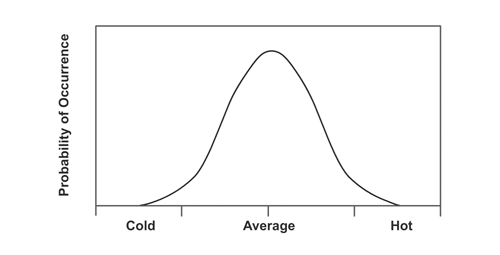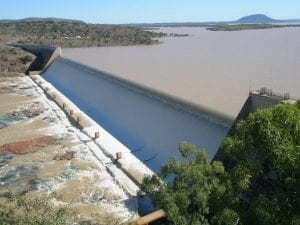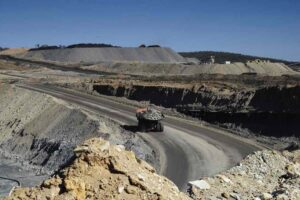
Two years ago this month, in a well-publicized and much lampooned political stunt, Sen. James Inhofe (R-OK) brought a snowball to the Senate floor to highlight the “unseasonable” cold and cast doubt on climate change.
The Republican lawmaker would have been hard-pressed to find a snowball anywhere in his home state this past weekend.
Oklahoma just endured a spell of exceptionally hot weather. Mangum, Oklahoma saw temperatures close to 100º F, setting a state record. The average February high in Mangum is 56º F.

It is extremely unusual to see such sweltering temperatures in the dead of winter, but climate change is loading the dice for record-breaking heat. Here, the human fingerprint is clear. Carbon pollution traps heat, warming the planet. This, in turn, shifts the entire distribution of temperatures.

Cold days become more rare, while warm days become routine. The hottest days — the ones that break records — are almost invariably linked to human influence. In this new climate system, extreme heat is far more likely than extreme cold. Over the last year, the United States has seen more than four times as many record high temperatures as record lows. The heat in Oklahoma is just the latest example.

Many people may welcome a temperate day in February, but warm weather in normally cold months disrupts ecosystems. Trees may bloom after an unseasonably balmy spell — and then suffer frost damage when cold weather returns. Flowers may blossom and shed their petals before bees arrive to pollinate them. These minor destabilizations have a ripple effect, impacting flora, fauna and the industries built around them.
In Oklahoma, the spike in temperature is particularly ironic, given the state’s political climate. Inhofe is Washington’s most vocal climate denier, having published a book alleging that climate change is a hoax while serving as the ranking Republican member of the Senate Environment Committee.
Inhofe will soon have an ally inside the EPA — Oklahoma Attorney General Scott Pruitt, President Trump’s pick to head the agency. Inhofe has describedPruitt, a longtime fossil fuel insider, as a “leader and a partner on environmental issues for many years.” Pruitt is expected to bring several former Inhofe staffers with him to his new office.
As Oklahoma’s attorney general, Pruitt has sued the EPA many times, including over the Obama administration’s plan to limit heat-trapping carbon pollution from power plants.
Jeremy Deaton writes for Nexus Media, a syndicated newswire covering climate, energy, policy, art and culture. You can follow him at @deaton_jeremy.
Source: Nexus Media. Reproduced with permission.









